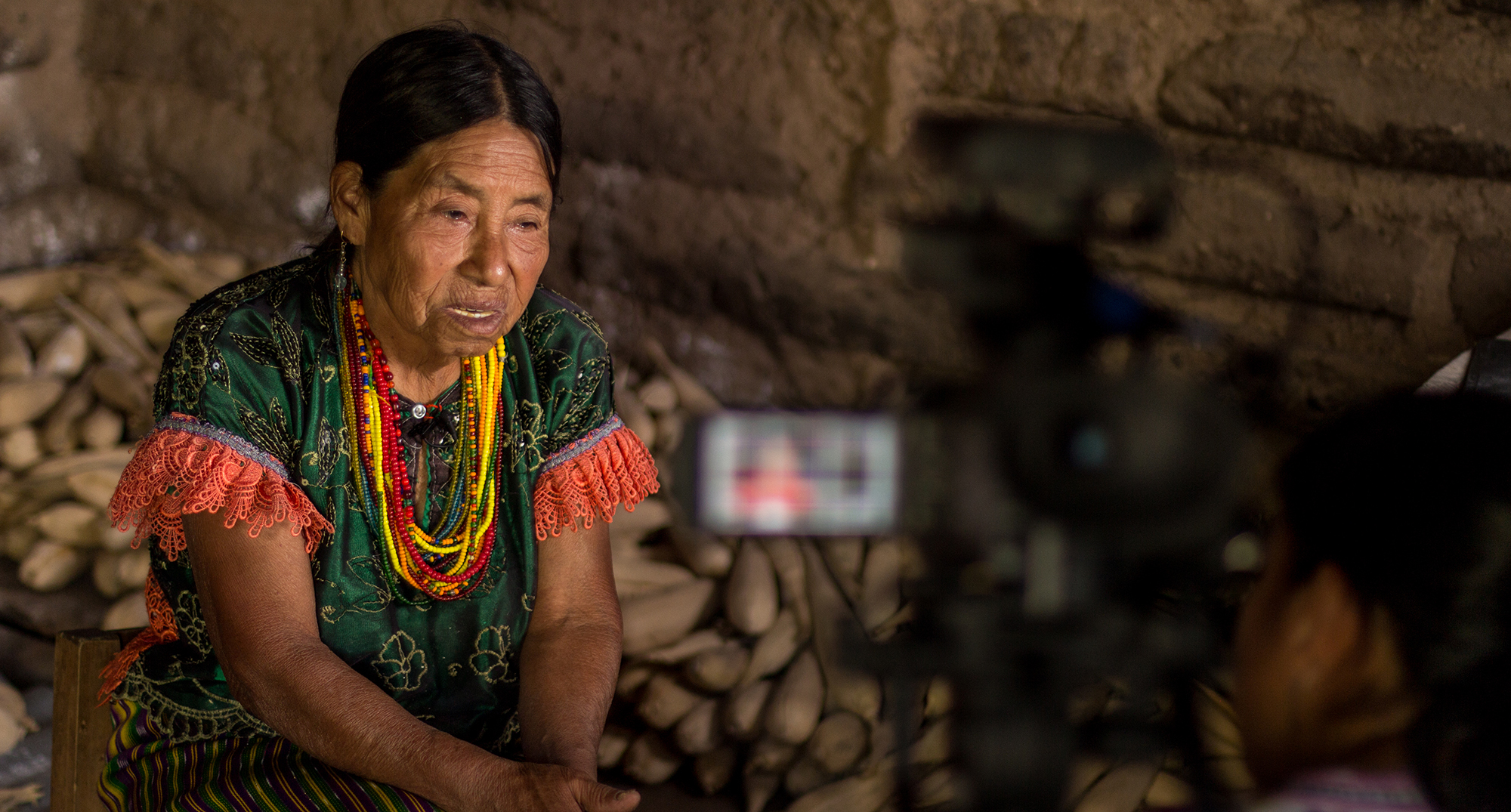"100 Days to Inspire Respect" Week 11: Countering Violence and Violent Extremism

 A Guatemalan Genocide survivor gives her testimony
A Guatemalan Genocide survivor gives her testimonyEntering its eleventh week of operation, USC Shoah Foundation’s 100 Days to Inspire Respect campaign will take some time to focus on violence and extremism. The age-appropriate exploration of topics related to violence is part of the Institute’s efforts to educate students and their teachers about hatred and intolerance using the Institute’s IWitness activities, academic resources and video testimonies from USC Shoah Foundation’s Visual History Archive.
After last week’s discussions of what courage looks like, the next seven days will facilitate students’ learning about the patterns and trajectories of violence, along a spectrum of human relations Irving Straub called the Continuum of Violence, which can be used as a tool for understanding the starting points of genocide; about sexual violence, in the context of comfort women in Nanjing; and the role of multiperspectivity in countering violent extremism.
In activities released daily on IWitness by USC Shoah Foundation’s Education Department, to be implemented by participating teachers on weekdays, students will watch videos and embark upon Mini Quests, Information Quests and Mini Lessons throughout the week.
Students will start the week out with a lesson on sexual violence as a weapon of genocide, as well as how international law has changed in regard to sexual violence. Students will be asked to reflect on the vulnerable situation women may find themselves in during acts of genocide, and on the differences between sanctioned sexual violence and opportunistic acts of sexual violence. This activity will predominantly by one in which students just listen and discuss.
On the second day, students will fulfill an information quest about the Continuum of Violence, the peace-building methodology designed by the Kigali Genocide Memorial. This activity will introduce students to the Continuum, which explains the steps that lead a society to commit mass violence and/or genocide. In allowing students to engage with first person accounts of genocide survivors and other multimedia sources, the Institute hopes students will develop an awareness of the 10 steps of the Continuum, and an understanding of how the theory can be applied to Rwandan society and the Genocide against the Tutsi in 1994. Students will also be asked to explore how they might intervene in a toxic situation and act in resistance to the Continuum.
The third day will center around a Connections Video about the Guatemalan Genocide; while the fourth day will center on an infographic about the five ways to counter violent extremism through testimony.
On the next day, students will complete a Mini Quest activity to explore the contributions eyewitnesses make to the historical record – they’ll watch the testimonies of those who witnessed genocide first hand, as well as other types of witnesses; and they’ll consider how such accounts contribute to understanding history, and how primary sources contribute to historical understanding. Students will do all of this under the context of the Armenian Genocide.
The next to last day, students will do a Mini Lesson about sexual violence in the Armenian Genocide, and on the last day, they will work on a Mini Lesson entitled “Uncomfortable History: Comfort Women and Sexual Violence in Nanjing” about women who were forced into sexual slavery by the Imperial Japanese Army.